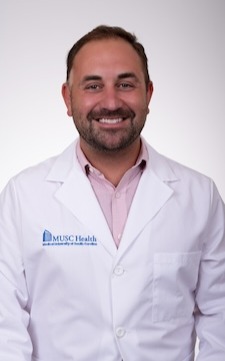Multiple myeloma treatment
Watchful waiting
Some cancers are indolent, or slow-growing, and aren’t causing problems at the moment. In these cases, close observation can make more sense than jumping straight to a treatment that may have side effects.
Chemotherapy
Medications, given as pills or by an infusion into the bloodstream, to kill cancer cells.
Blood and marrow transplant (BMT)
MUSC Health was the first hospital to perform a bone marrow transplant in South Carolina, and the first program in the world to perform an outpatient transplant with an unrelated donor. A BMT wipes out the cancer cells with high doses of chemotherapy and/or radiation therapy and then gives you a dose of healthy stem cells that will begin producing new, healthy blood cells.
Immunotherapy, including CAR-T cell therapy
Hollings offers adult and pediatric CAR-T cell therapy programs that help your body recognize, and fight, cancer cells. Using state-of-the-art technology, our researchers are working to purify T-cells to reduce side effects and improve outcomes.
Targeted therapy
Medications that look for specific features on cancer cells and reduce harm to nearby normal cells.
Radiation therapy
Radiation can improve cancer-related symptoms, or be used to cure cancer itself. For example, it could be targeted toward a painful, swollen spleen or toward bone pain. In specific cases, radiation therapy treats the cancer with or without additional therapy.
Specialized services for multiple myeloma patients
- HOPE Unit. The Hematologic Oncologic Protective Environment unit on the 7th floor of MUSC Health’s Ashley River Tower is a technologically advanced inpatient unit designed for immunocompromised patients that uses the same sophisticated HEPA filtration system found in operating rooms.
- Charleston Hope Lodge. The American Cancer Society’s Hope Lodge, which provides free housing for patients and a companion, is located one block from Hollings.
Refer a multiple myeloma patient
To refer a multiple myeloma patient to Hollings, please call patient referral coordinator Debra Oree at 843-985-0567.
Nurse navigator support
Our blood and lymphatic cancer nurse navigators, Bonnie Boyce, BSN, RN, OCN, and Katie Fitzmaurice, RN, BSN, CPN, will help you understand what to expect during treatment and answer questions you may have.









